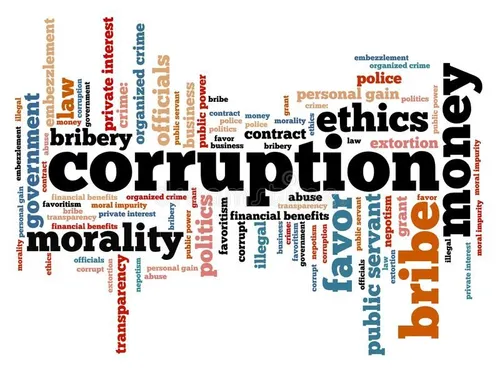· IT
The Great Firefly or just an Ordinary Bug
From WWI to IT giants, US pragmatism shines—self-interest drives policy and profit. Central Europe awaits aid, but history shows America acts late, if at all, prioritizing gain over goodwill.

There was a time when we called the USA the Great Firefly. Some said it was because, during the night, flying across the US, the land looks very bright and luminous. Others said it was to counter the old communist saying that light comes from the East, meaning from the USSR, from Moscow. Irrespective of where this originated, Romania and, in general, Central and Eastern European countries were fond of Americans and American companies. In today's article, I would like to draw a parallel between the behavior of US IT corporations and the decisions and actions of the US government over the past 100+ years.
Both ordinary citizens and, more recently, IT professionals were always waiting for the Americans to come and save them. Let us dig into that to understand how the Americans reacted.
During World War I, America joined forces with the Entente allies—France, the UK, Russia, Italy, and Japan—very late in the game, in 1917, three years after the war had started. The Americans were decisive in bringing the war to a quicker end, especially after Russia became Communist in November 1917 and, later in the spring of 1918, signed a separate peace agreement with the Central Powers, which consisted of the Empires of Germany, Austro-Hungary, and the Ottoman Empire. President Wilson and public opinion in the US were strongly against entering the war, maintaining an isolationist stance. They also claimed that the US Army was not prepared for battle. The main reason the Americans finally entered the war was the famous Zimmermann Telegram, in which Germany promised to aid Mexico in recovering Texas, Arizona, and New Mexico. There were other factors, such as submarine warfare and German propaganda, but in the end, it came down to territorial interests.
World War II. The Americans once again entered the war late for the same old reasons: people were not interested, or more accurately, were seriously divided, and the US Army was not prepared for war. The third reason, even though the French were begging for help, was that Roosevelt was campaigning for his third presidential term and did not have time for a war in Europe. As a result, the German war machine easily conquered half of Europe. When Nazism became a real threat even across the Atlantic, and the danger of losing control over too many countries became apparent, our Yankee friends finally joined the fight. They declared war first on Japan after the Pearl Harbor attack, and a few days later on Germany and Italy.
Let us move closer to our present day, to the wars in which the US has participated, such as Vietnam, Afghanistan, and Iraq. They are all related to economic reasons and territorial control. The justification regarding Weapons of Mass Destruction for the war in Iraq, at least, was a joke. No WMDs were found there, but the US invasion created huge chaos within the country, far from the democracy that was supposed to be implemented.
On the other hand, we know how the Russians have behaved and treated other nations throughout history. There is not much difference between the Russian Empire, the Communist USSR, and the current autocratic Russian regime. It is all about conquering territories and influencing the local political environment to serve Russian interests.
Based on the facts mentioned above, one could argue that the Americans go to war for territorial control, financial gain, or sometimes, though very rarely, to defend their own citizens. So, my question is - why are people so surprised by the behavior and direction of the new US administration? Looking back in time, America has always been very pragmatic, following its own interests in the purest capitalist way of thinking: What's in it for me?
American IT companies follow the same rules as foreign policy. One of the companies I worked for had a department called the Resource Management Program Office, led by a VP. Their job was to advise the Board of the company on which country to invest in. These people were experts in their respective domains, covering the entire spectrum of a country's social, economic, and political environment. Their reports included data on country's infrastructure, salary levels, real estate costs, education quality, availability of skilled graduates and professionals, internal and external risk factors, the existing IT services delivery landscape (competitors and captives), large companies, macroeconomic comparisons, labor flexibility and laws, taxes and free trade agreements, city profiles, and much more. They interviewed politicians, NGOs, company leaders, labor lawyers, AmCham directors, university professors, local administration managers, and many others.
I worked with them on their assessment of four countries: Bulgaria, the Czech Republic, Romania (obviously), and Ukraine. The final report was a masterpiece, probably better than any CIA assessment, providing clear and strong advice on where the company would make the biggest profit with the lowest risks. I am not going to reveal much more, except to say that Ukraine received a 'No Go' for investments for at least the next five years. This was in the year 2012.
Another example: A large global American IT company opened a delivery center in Vietnam, solely because one of the board members had a close Vietnamese acquaintance, the daughter of a general who had fled the country to the US. This delivery center was supposed to service French-speaking countries, as someone claimed that Vietnamese people were fluent in French. Urban legend. The center reached about 120 people but could not grow despite all the efforts made and the support of the important officer. At one point, they decided that every US or European deal under 1 million dollars must be staffed from Vietnam, not from India or China, the usual suspects. Nothing helped; the delivery center struggled, remained at the same small size, and after the big gun retired, they closed it. Of their staff, 80% of the people were replaced by Romanians, who actually spoke French.
The conclusion is simple. Just like American foreign policy, the investments of American IT companies are not based on friendship or kindness, but on self-interest—specifically, profit and the high likelihood of making money. There is nothing wrong with that, at least I do not think so, but we should stop assuming that Americans will rush to help us in Central and Eastern Europe or Europe in general. But if they do come, it will be too late in the game. History provides many examples that prove this US behavior, as I already explained
.
It is also very true that the current US administration has completely changed the paradigm. While the Biden administration made decisions based on the old strategy of 'the enemy of my enemy is my friend,' thinking that the war in Ukraine would weaken Russia's war machine and economy, the Trump administration sees and leads the US as a company—a business. A business that needs to make a profit, expand globally, acquire new territories, find new partners in places that were not yet very familiar, Greenland or Panama come to mind, and sign new deals with other countries based on the 'brilliant' negotiation skills of the US President. These negotiation skills are pretty much based on fake numbers, false historical facts, and bullying.
At the same time, just like in business, they go for the kill with the competition. For example, the US President stated that the European Union was created solely 'to screw the US.' Setting aside the questionable wording, I invite Mr. President to take a trip along the European highways, as I did a few days ago. I traveled by car from Bucharest to Bruges and back, crossing Hungary, Austria, Germany, France, Luxembourg, Belgium, the Netherlands, the Czech Republic, and Slovakia. The first lane of all highways in these countries was packed with trucks, and 60-70% of them were from Eastern Europe: Poland, Latvia, Lithuania, Bulgaria, Romania, even Ukraine. The EU created a huge single market that the US administration sees as a strong competitor, and is trying to dismantle.
In IT, there are a few famous examples of attempts to acquire, beat, and then kill the competition, such as Oracle's fight against SAP and HP's acquisition of Compaq. Oracle Corporation viewed SAP Germany as their nemesis in the ERP solutions space. Oracle realized they could not beat SAP openly, as the Germans had a few years' lead with their ERP solution, so they decided to wipe out the other competitors. They bought PeopleSoft in 2004 through a hostile takeover, after PeopleSoft had acquired JD Edwards in the same way just one year earlier. Did all this help Oracle close the gap with SAP? Not really. On the contrary, customers lost confidence in Oracle Corp’s strategy and opted for SAP or other specific solutions rather than Oracle E-Business Suit.
The second example is similar but in the infrastructure area. Compaq bought Digital Equipment Corp (DEC) in 1998, and HP acquired Compaq in 2002. The merger of HP and Compaq was a disaster for both companies. None of these takeovers resulted in successful business outcomes for the new owners. Not to mention that the acquired companies simply disappeared, with some—like PeopleSoft or DEC—having better products than their new owners, in my view.
Another similar element between the new American administration and American IT companies is the obvious conflict of interest when it comes to highly ranked officers. Two examples from IT companies:
One of the largest IT platforms, currently under construction and deployment for the EU countries, is being developed by a consortium that includes a large American IT company. The project is staffed with many IT experts from Romania, and over the years, Romanians have become very knowledgeable about the design and technology used in the platform, making them difficult to replace. However, a London-based recruiting company came on board and brought in freelancers at double, or even higher, rates. When people on the project asked why the sudden change and why Romania was no longer a staffing hub, the answer was 'do not ask, do not tell,' as they had strong support from top corporate management. I bet that support was all free of cost.
Second, mergers and acquisitions are where you can make big bucks if you are a decision-maker in a corporation. Bonuses are very high and paid immediately after the deal is approved and signed. The company I worked for bought a native cloud company from the Nordics about five years ago. Financial colleagues from the US, people I've known for years and trust, told me that the loss—the loss, not the acquisition cost—on that acquisition ranged between 70-80 million or even more, the highest loss the company had ever incurred for an acquisition in its 100+ year history. Some people, however, cashed in their high bonuses after the deal closed.
The conflict of interest within the new American administration is a non-issue, according to them. I will mention only the $38 billion business that Elon Musk has with the US government, the Trump family, and close friends spread across various high-ranking positions or simply acting as strong influencers within the US administration. Practically speaking, today the US administration is being run exactly like a family business. They should rename the country, as they did with the Gulf of Mexico to Gulf of America, from the USA to UST – the United States of Trumps.
The reality is that we should not be surprised by all of this if we simply look at US foreign policy over the years. Maybe, just maybe, we could be surprised by the magnitude of change and the aggressive, totalitarian behavior of the new administration. As I mentioned in some of my other articles, American society and business have been built over hundreds of years, like a spider's web. As long as one is part of it, everything is fine. If not, one is simply consumed by the spiders wandering around. Outside the spider's web, nothing else matters, as the song goes—unless it's... food!
PS. An interesting question heard from friends, acquaintances, the media, or social media: Why is the US president so nice to Russia's President Putin, never criticizing him or calling him names like he does with many others?
He has been a Russian spook since the '80s, or
The Russians are blackmailing him with compromising documents and photos proving bribery, inappropriate relationships with women etc., or
Putin is blackmailing him with the Russian intervention in the American election process...twice! Or
All of the above, or, finally,
POTUS Trump is a genuinely a nice person.
The answer will most likely remain unanswered, and along with the JFK shooting and Jimmy Hoffa's burial place, it will compete for the title of the best-kept secret of the last 100 years.



